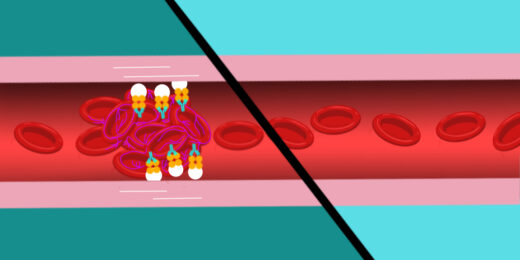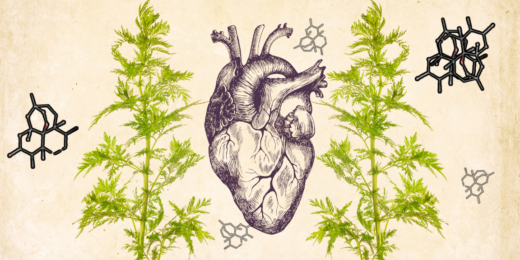Stanford Medicine psychiatrist Anna Lembke unpacks the potential of FDA-approved weight-reducing GLP-1 drugs like Ozempic as tools in treating addiction.
Category: Innovation & Technology
A better, faster sepsis test that can save lives
FDA clears Stanford Medicine-spawned sepsis test, developed using machine learning, that leverages publicly available medical datasets from around the world.
What’s the deal with microplastics, the material that ‘never goes away’?
Whether we know it, or like it, our bodies are polluted by tiny fragments of plastic that fail to break down in our earthly environment. What does that mean for our long-term health, and what can we do about it?
Optimizing the telehealth experience could benefit patient, physician
Stanford Medicine's Kevin Schulman says digitally enabled care (DEC) would ease clinical workload and improve services for patients beyond virtual visits.
How this doctor is combatting a gravely serious clotting condition
Giselle Salmasi’s collaboration with a colleague at the Mayo Clinic gives a patient with a recently identified blood clotting disease a new lease on life.
Ask me anything: What to know about hearing loss
What actually causes hearing loss? Are there new treatments that can restore hearing? Can it be reversed? How does air travel affect hearing loss?
Stanford Medicine launches new podcast, Health Compass
New Stanford Medicine podcast, Health Compass, focuses on the crucial research and important researchers moving health topics forward.
How supporting family, along with patients, became part of hospital’s mission
When the new Stanford Hospital opened five years ago, a carefully designed third-floor resource center gave for those caring for loved ones an important safe haven.
Biodesign cultivates community partnerships to broaden understanding of health equity
Biodesign program aims to ensure all trainees have a better understanding of health equity and appreciate the ways in which new technologies can widen or narrow the gaps in access to care.
Old drug, new discovery: Scientists find novel use for ancient malaria remedy
Stanford Medicine researchers on the hunt for an elusive cardiac fibrosis drug were surprised when a malaria drug with ancient origins emerged as their top candidate.
A doctor, his cancer journey and a uniquely teachable moment
Bryant Lin has taken his diagnosis of stage IV ‘never-smoker’ lung cancer, which disproportionately affects those of Asian descent, and turned it into a medical school course. He hopes the world takes notes along with the students and Stanford Medicine community.
Stanford Medicine experts help Nobel winner custom design proteins for COVID-19 therapy
Custom designing proteins — a breakthrough recognized by the latest Nobel Prize in chemistry — could yield treatments that stop the worst of COVID-19 before it begins.
California excels at screening babies for main cause of childhood blindness
Vision damage from a complication of premature birth can be halted if it’s caught soon enough — and a California Perinatal Quality Care (CPQCC) and Stanford Medicine-led study shows the state’s screening process is helping close racial gaps.
The new tech that could improve care for Parkinson’s patients
Technological advancements allow diabetes patients to monitor their glucose levels remotely. Stanford Medicine researchers are refining similar tools for Parkinson’s patients and the providers they don’t see often enough.
Is your asthma inhaler bad for the environment?
A team of physician-scientists calculated how much greenhouse gas is being emitted by inhalers prescribed for asthma and chronic obstructive pulmonary disease.
How space became a place for the study of aging
Stanford Medicine scientists are studying why even brief trips into space can weaken muscle and heart tissue, mimicking decades of aging on Earth.

















